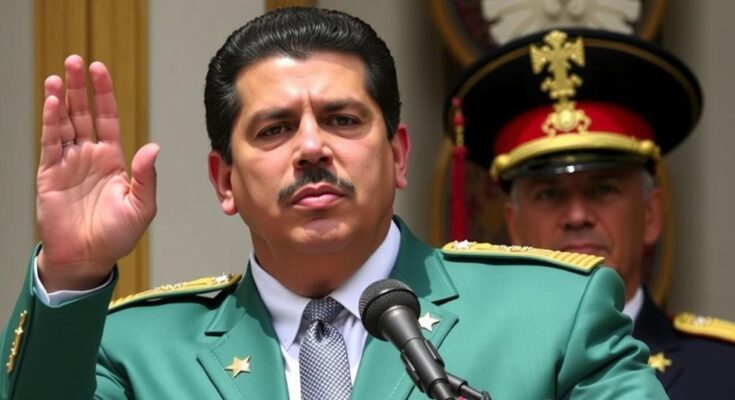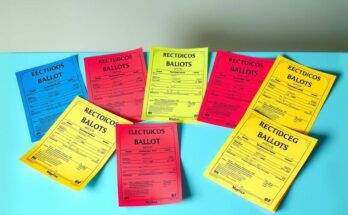Nicolás Maduro was sworn in for a third term as Venezuela’s president amid international condemnation and claims of electoral fraud. His inauguration followed disputed elections in July, which the opposition and many countries, including the United States, reject. Ongoing tensions with opposition leaders and reports of political repression further complicate the political landscape in Venezuela.
On Friday, Nicolás Maduro was sworn in for a third presidential term in Venezuela, following elections in July that were marred by controversy and claims of fraud. During the ceremony held before the parliament, President Maduro expressed his intention for this new term to be characterized by peace, prosperity, equality, and democracy. However, his presidency continues to face international condemnation, particularly from neighboring countries such as Brazil and Colombia, as well as from opposition groups within Venezuela who contend that the elections were heavily rigged against them.
The official announcement of Maduro’s victory by the National Electoral Council (CNE) has not been recognized by many in the international community. The opposition, led by figures such as Edmundo González, has garnered support from various nations, including the United States, who instead regard González as the duly elected leader. Following the elections, González sought asylum in Spain while Maduro’s government issued an arrest warrant for him, promising a reward for information leading to his capture.
Tensions escalated with incidents involving the opposition, including the recent arrest of María Corina Machado, a prominent leader who was temporarily detained after addressing a protest. Although she was released shortly afterward, reports suggest that she has been subjected to intimidation and harassment, forcing her into hiding. Moreover, the United Nations alerted the global community about the arbitrary detentions occurring in Venezuela as well as the hostile environment surrounding political opposition and dissent.
Overall, Maduro’s third term promises continued conflict between his administration and opposition groups, while international observers remain concerned about the human rights violations perpetrated in the country. As Venezuela grapples with these challenges, the future of its political landscape remains uncertain and fraught with potential crises.
Nicolás Maduro’s presidency has been contentious since its inception. Following the death of Hugo Chávez in 2013, Maduro’s rule has been characterized by political turmoil, economic hardship, and accusations of authoritarianism. The July elections, which he was declared the victor of, led to widespread protests and a significant divide between supporters and opponents. The situation has further intensified with the involvement of opposition leaders who contest the legitimacy of Maduro’s governance and assert their own claims to leadership, often with international backing. The continued crackdown on dissent has raised alarm among human rights organizations and foreign governments alike.
In summary, Nicolás Maduro’s inauguration for a third term epitomizes the ongoing political strife in Venezuela, where claims of electoral fraud and a repressive regime have fueled opposition dissent. With the international community largely rejecting the election results and supporting rival leaders, the situation remains fraught with tension. The recent arrests and intimidation tactics against opposition figures signal that the conflict is unlikely to resolve favorably for democratic processes in the near future.
Original Source: www.bbc.com




